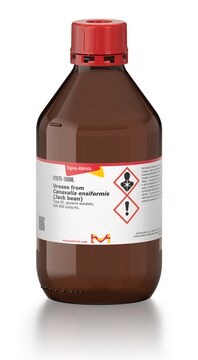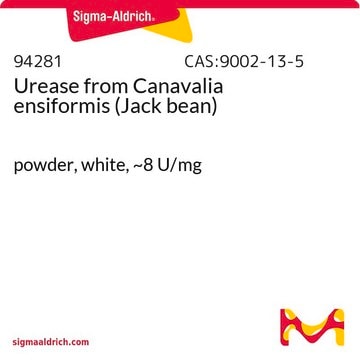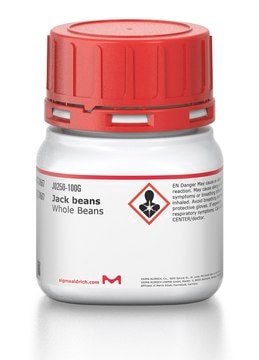MAK120
Urease Activity Assay Kit
sufficient for 100 colorimetric tests
Synonym(s):
Urea Amidohydrolase Activity Assay Kit
About This Item
Recommended Products
usage
sufficient for 100 colorimetric tests
application(s)
environmental
detection method
colorimetric
relevant disease(s)
gastrointestinal diseases
storage temp.
2-8°C
Related Categories
General description
Application
Features and Benefits
Suitability
Principle
Signal Word
Danger
Hazard Statements
Precautionary Statements
Hazard Classifications
Aquatic Acute 1 - Aquatic Chronic 2 - Eye Dam. 1 - Met. Corr. 1 - Muta. 2 - Skin Corr. 1B
Supplementary Hazards
Storage Class Code
8B - Non-combustible corrosive hazardous materials
Flash Point(F)
Not applicable
Flash Point(C)
Not applicable
Certificates of Analysis (COA)
Search for Certificates of Analysis (COA) by entering the products Lot/Batch Number. Lot and Batch Numbers can be found on a product’s label following the words ‘Lot’ or ‘Batch’.
Already Own This Product?
Find documentation for the products that you have recently purchased in the Document Library.
Customers Also Viewed
Our team of scientists has experience in all areas of research including Life Science, Material Science, Chemical Synthesis, Chromatography, Analytical and many others.
Contact Technical Service










